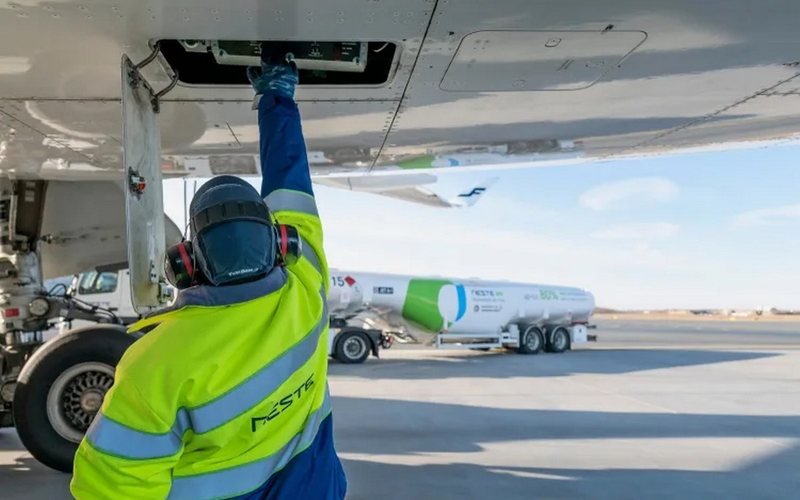[aviation news]
Valida proposal from Brazil for SAF with multiple cultures and highlights the country in the global sustainable fuel market
The International Civil Aviation Organization (Icao) approved a technical recommendation that recognizes the practice of multiple agricultural cultures as valid for the production of sustainable fuel for aviation (SAF).
The decision, made after the 13th Meeting of the Aviation Environmental Protection Committee (CAEP), was proposed by Brazil and establishes a regulatory framework for certified SAF production, focusing on reducing carbon emissions from the air sector.
The recommendation validates the use of agricultural techniques that increase raw material productivity without the need to expand the planted area or convert soil use. This practice contributes to environmental preservation and food security, strengthening the role of countries with favorable climate, such as Brazil, in the global offer of sustainable raw materials.
According to Icao, the measure makes room for nations in development to participate in the energy transition in a fair and inclusive way, with generation of employment and income from the production of renewable fuel capable of substantially reducing carbon emissions.
SAFRINHA RECOGNITION
In addition to the multi-culture methodology, Icao also approved carbon intensity values for the SAF produced from the second crop corn, known as cornform, reinforcing the feasibility of this national productive route.
Brazil is already a reference in innovative technologies such as Ethanol-to-Jet, which converts ethanol into SAF and allows its use in current aircraft and infrastructures without adaptations.
ANAC’s performance was decisive for approval
The Brazilian technical performance, coordinated by ANAC at CAEP, was fundamental to the result. The work was supported by Embrapa experts, Unicamp, Getulio Vargas Foundation (FGV) and representatives of the Ministries of Mines and Energy and Foreign Affairs.
The initiative is part of the SAF Connection, led by ANAC, which connects public, private and academics to develop solutions aimed at decarbonization of aviation.
!function(f,b,e,v,n,t,s)
{if(f.fbq)return;n=f.fbq=function(){n.callMethod?
n.callMethod.apply(n,arguments):n.queue.push(arguments)};
if(!f._fbq)f._fbq=n;n.push=n;n.loaded=!0;n.version=’2.0′;
n.queue=[];t=b.createElement(e);t.async=!0;
t.src=v;s=b.getElementsByTagName(e)[0];
s.parentNode.insertBefore(t,s)}(window,document,’script’,
‘
fbq(‘init’, ‘1626712270970227’);
fbq(‘track’, ‘PageView’);
Share this content:

